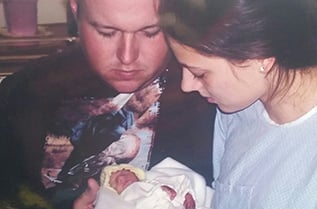Molecular testing for Duchenne and Becker muscular dystrophy involves multiple ligation-dependent probe amplification (MLPA) analysis that can detect up to 98% of all deletions and duplications in the DMD gene in patients and females that carry the mutation.
2 weeks
81161
$500
Both Duchenne muscular dystrophy and the milder Becker muscular dystrophy are due to mutations in the dystrophin gene located on the X chromosome. The characteristic features of these disorders include pseudohypertrophy of the calf muscle, myofiber degeneration, myopathic EMG changes, and dramatic elevations of serum creatine kinase. Approximately two-thirds of mutations in the dystrophin gene are due to deletions and duplications. The majority of the remaining dystrophin defects result from point mutations within the gene.
Molecular testing is useful to confirm the diagnosis and to identify the disease causing mutations within a family to allow for carrier testing and prenatal diagnosis.
multiplex ligation-dependent probe amplification (MLPA)
Testing for Duchenne and Becker muscular dystrophy involves multiple ligation-dependent probe amplification (MLPA) analysis that can detect up to 98% of all deletions and duplications in muscular dystrophy in patients and females that carry the mutation. Approximately 75% of patients with DMD and 95% of individuals with BMD will have a deletion or duplication.
The preferred sample type is 3-5 ml of peripheral blood collected in an EDTA (purple top) tube. Extracted DNA and saliva are also accepted for this test. Saliva samples must be submitted in an approved saliva kit. Contact the lab to receive a saliva kit or to have one sent to your patient.
The specimen should be kept at room temperature and delivered via overnight shipping. If shipment is delayed by one or two days, the specimen should be refrigerated and shipped at room temperature. Do not freeze the specimen. Samples collected on Friday can be safely designated for Monday delivery.
Prenatal diagnosis is available if the familial mutations are known. Additional fees for cell culture and maternal cell contamination may apply. Maternal cell contamination studies are required for all prenatal molecular tests. Contact the laboratory prior to sending a prenatal specimen.
Call our laboratory at 1-800-473-9411 or contact one of our Laboratory Genetic Counselors for assistance.
Robin Fletcher, MS, CGC
Falecia Thomas, MS, CGC
Alex Finley, MS, CGC
